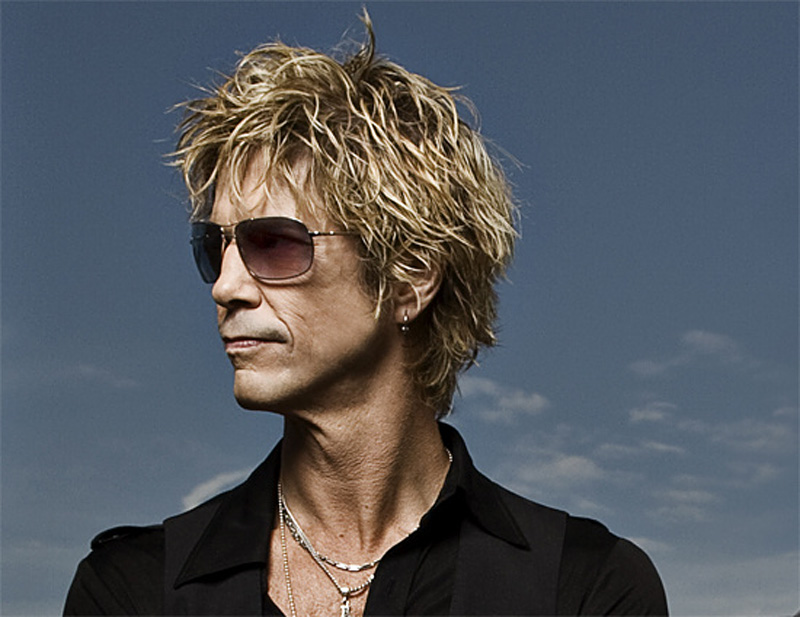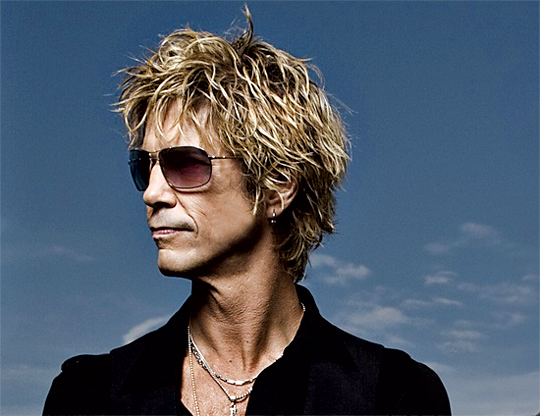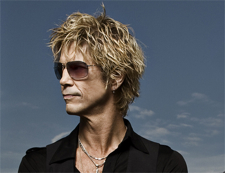The memories I have of the mid-to-late-’80s Hollywood rock scene do not necessarily include the bands that may pop into one’s mind. My band, Guns N’ Roses, and the close network of friends that we kept were a ragtag bunch of outcasts who remained rather insulated and kept to ourselves during this period. We had little in common with the popular L.A. bands then. Though parts of this story may seem a bit dark, this period of my life was one of the funnest and most profound. It also contained many strong elements of a young man’s rite of passage, including a loss of innocence in many respects and facing mortality as a result of losing close friends to overdoses. Maybe not the usual rites of passage, but at the time these life hurdles seemed normal.
I packed my bags and cut my ties with my hometown of Seattle in September 1984. The idea of driving to New York in my beat-up 1971 Ford Maverick became moot when I realized that, on a budget of $360, the East Coast was just too far away. I decided Los Angeles was a safer place for me than the Pacific Northwest’s heroin-infested punk scene. I was badly mistaken.
There was really no discernible rock scene in L.A. in the fall of ’84—only the palpable hangover of a once-thriving punk movement, mixed with “cow-punk” and really bad heavy metal (Metallica had just moved back to San Francisco). I met Slash and Steven Adler shortly after my move through a “musicians wanted” ad I saw in a newspaper. Izzy Stradlin moved into an apartment across the street from me. (We lived on one of the most drug-infested lanes in Hollywood, visited nightly by dealers, hookers, and cops. Stories of this street alone would make a great book.) Axl, a childhood friend of Izzy’s, soon moved in around the corner in our cheap-rent neighborhood. We formed our band shortly thereafter, a happy bunch of malcontents!
My new musical comrades and I shared an uncanny similarity in our “Fuck everyone except us” approach to writing, playing, and living our music. We sought to do this thing on our own terms and in our own way. This was simply a way of life. At that point in life, you’ve just got nothing to lose . . . a point anyone reading can relate to, I am sure.
The first gigs we got back then were with bands like Social Distortion, Tex and the Horseheads, and the Red Hot Chili Peppers. The “glam” scene across town seemed to be a private club that had some mysterious secret handshake. The Troubadour was always packed on weekends. At the time, I think we were thought of as a little too dirty to get an opening slot on those most-coveted Friday- and Saturday-night bills. We would have to get there on our own.
Our social circle soon included a group of recently transplanted New Yorkers who moved out West to—I always suspected—escape legal problems. “Red” Ed, Petey, and Del melded nicely into our lifestyle, which included 24-hour alcohol consumption, scoring any available drugs, sundry debauchery, and plenty of Rolling Stones, Motörhead, Sly and the Family Stone, and Rose Tattoo (Sly lived in the apartment right above me, as it turned out, but that’s another story). West Arkeen was another co-conspirator who became valuable not only for his friendship but for his songwriting. West co-wrote “It’s So Easy,” which became a dark anthem for a legion of disenfranchised youth. West died a few short years later from complications stemming from acute crack and heroin use.
In 1985–86, AIDS was definitely something to think about, but not yet considered a huge threat in the heterosexual psyche. The scene in Hollywood became an orgy of sex, drugs, and rock ‘n’ roll. Perhaps there has been no other time in recent history when the doors were so wide open to everything. Needles were shared, as well as girlfriends and boyfriends. Everyone seemed to be living in and for the moment, and it seemed as if nothing was off-limits. A real feeling of camaraderie was felt in our band and small group of friends. “Live fast and die young” was our unspoken credo. Sounds corny now.
Our living and rehearsal arrangements became one and the same as we became closer-knit. We found a 10′ x 14′ bathroom-less space behind the Hollywood Guitar Center that became the center of our musical universe and HQ for all things hedonistic. We raided a nearby construction site for some two-by-fours and plywood that we used to install a ramshackle sleeping loft in our tiny new home. We rehearsed twice daily in this space. For $1.29 a bottle, we could supply ourselves with enough Night Train wine to get us by. Food was always optional in those days.
We slowly began to be a draw at local clubs, and our song craftsmanship really started to get a solid base. We were soon on weekend bills as opening slots gave way to headlining. A&R staff from major labels started to pop up at gigs, and our shows were now selling out. We settled on a record deal with Geffen Records that gave us free rein as far as artistic freedom went. At the end of the day, no one was going to tell us how to make our records. Our songs were by far the most important thing to us.
Next week, McKagan tells what it’s really like playing in Earth’s biggest band. His column runs every Monday and Thursday on our music blog at seattleweekly.com/reverb.







